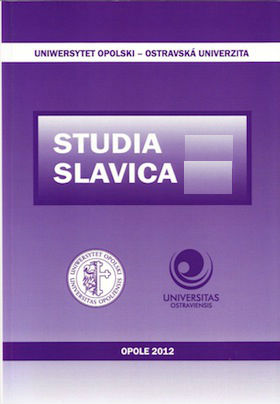
Teaching the national language in Slavic Europe. Project of poetics of immunization
DYDAKTYKI JĘZYKA NARODOWEGO W SŁOWIAŃSKIEJ EUROPIE. PROJEKT POETYKI IMMUNIZACJI
Keywords: education; language; politics; reality; immunization; experience
The author analyzes the basis of Polish educational policy in the context of postmodern culture. Indicates the dependence of educational policy from decisions of economists. Argues that in the era of globalization the educational impact of the national languages should be protected. Aggressive dominance of English in the cultural space requires reform of teaching of national languages. The author therefore proposes own project of comparative research on education in national languages in Central Europe. The main thesis of the paper talks about the need for a immunization of national educational discourses. One of the useful here methodology, the liberating power of indigenous languages can be poetically recognized affordances (J.J. Gibson). Finally, the author invites interested parties to create an international research consortium.
More...